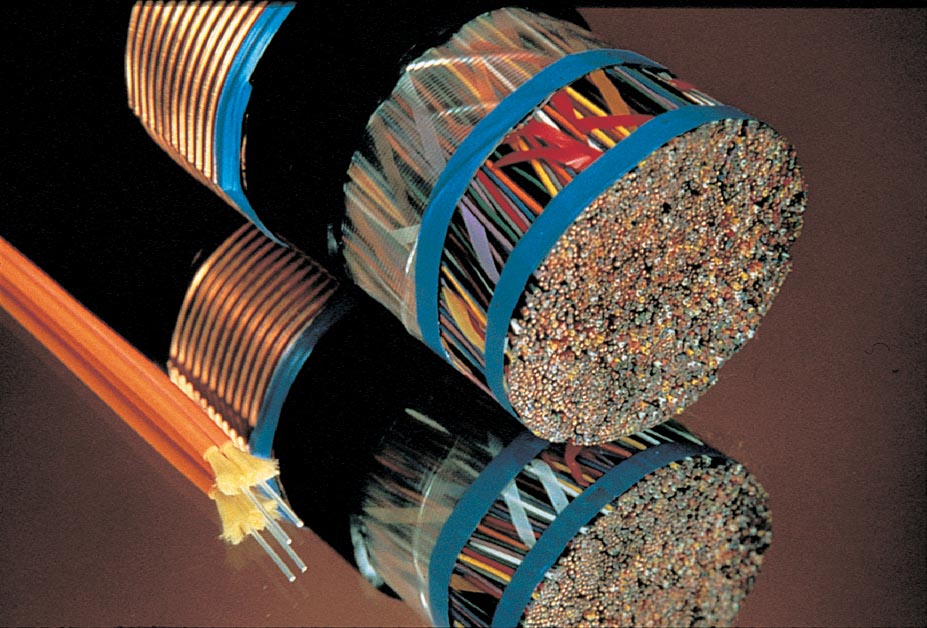
Fiber-optic Cable
Definition: Cable that consists of dozens or hundreds of thin strands of glass or plastic that transmit pulsating beams of light rather than electricity. Why it's important: These strands, each as thin as a human hair, can transmit up to 2 billion pulses per second (2 Gbps); each "on" pulse represents one bit. When bundled together, fiber-optic strands in a cable 0.12 inch thick can support a quarter-million to a half-million voice conversations at the same time. Moreover, unlike electrical signals, light pulses are not affected by random electromagnetic interference in the environment. Thus, they have much lower error rates than normal telephone wire and cable. In addition, fiber-optic cable is lighter and more durable than twisted-pair and co-ax cable. A final advantage is that it cannot easily be wiretapped, so transmissions are more secure.
